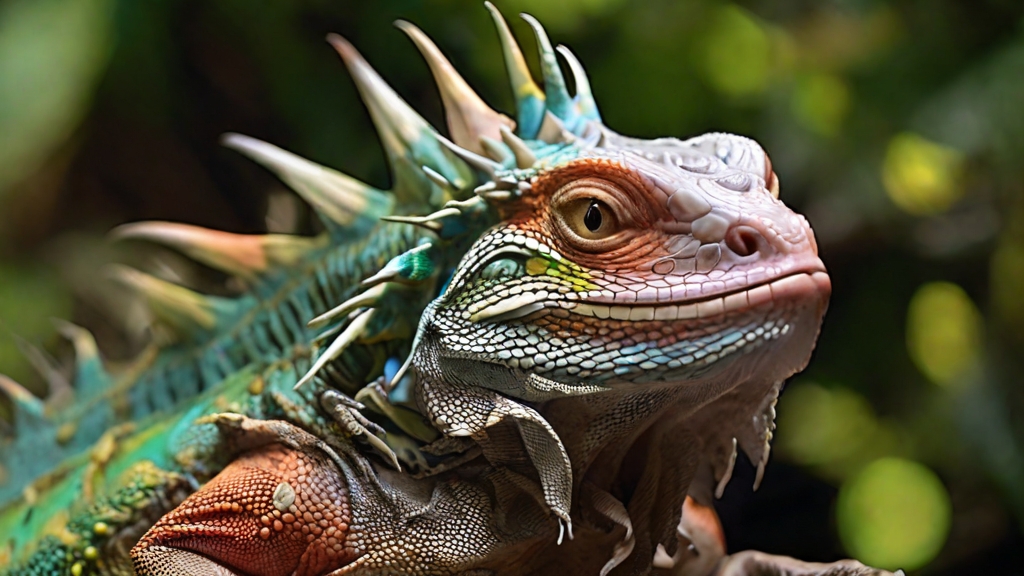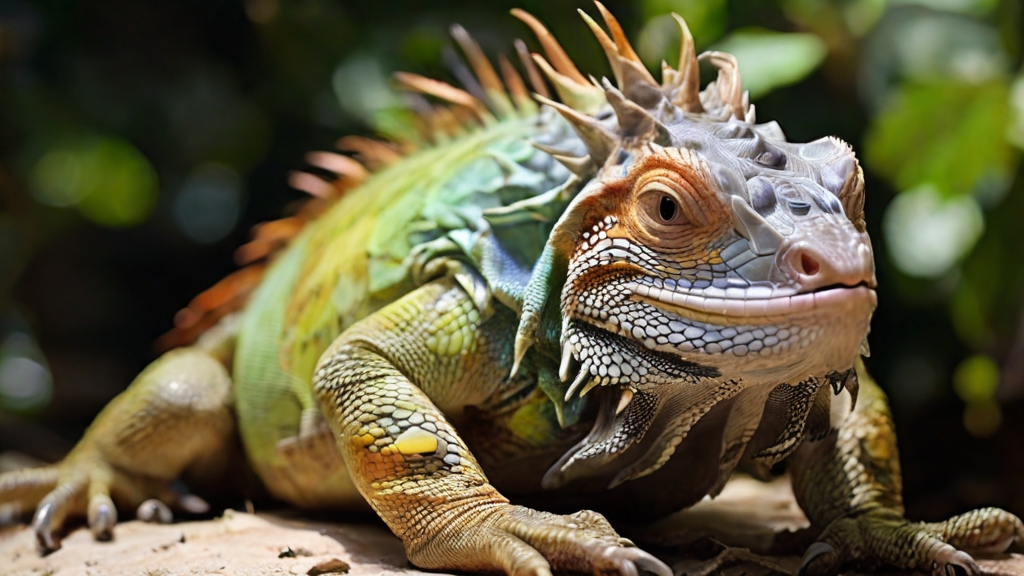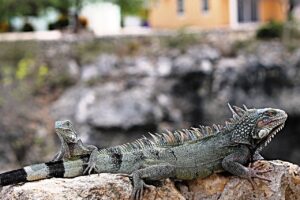As with any pet, it’s important to do your research before bringing an iguana into your home.
While they may be low maintenance compared to some other exotic animals, they still require a significant amount of care and attention.
How Long Do Iguanas Live as Pets?
Iguanas can live for upwards of 20 years when properly cared for as pets. However, it’s not uncommon for them to have shorter lifespans due to poor diet, lack of healthcare, or subpar living conditions.
By ensuring that your iguana has a balanced diet, regular veterinary check-ups, and a suitable habitat, you can help it live a long and healthy life as a beloved pet. It’s important to remember that the lifespan of an iguana can vary greatly and is dependent on the individual animal and the care it receives.
Keep Your Iguana Healthy and Happy
One of the most important aspects of caring for an iguana is providing a suitable habitat. Iguanas are native to tropical regions, so they need an environment that closely mimics their natural habitat.
This means providing a spacious enclosure with appropriate temperature, lighting, and humidity levels.
The temperature in your iguana’s enclosure should range from 75-85 degrees Fahrenheit during the day, with a basking spot that reaches 95-100 degrees. At night, the temperature should not drop below 70 degrees.
It’s important to use a thermometer to accurately monitor the temperature and make any necessary adjustments.
In addition to the proper temperature, iguanas also require appropriate lighting. They need access to both natural sunlight and artificial UVB lighting.
Natural sunlight is the best source of UVB, but it’s not always possible for iguanas to get enough exposure. In these cases, it’s important to use a high-quality UVB lamp to provide the necessary lighting.
The humidity level in your iguana’s enclosure should be kept between 50-70%. This can be achieved by misting the enclosure several times a day and providing a water dish for your iguana to soak in. It’s also important to regularly clean the enclosure to prevent the buildup of bacteria and parasites.
In addition to a suitable habitat, diet is another important factor in the lifespan of an iguana.
As herbivores, iguanas should be fed a varied diet consisting primarily of leafy greens and vegetables. Some good options include collard greens, kale, dandelion greens, and mustard greens.
Vegetables such as bell peppers, squash, and sweet potatoes can also be included in small amounts. It’s important to avoid feeding your iguana too much fruit, as it can lead to obesity and other health issues.
Calcium is another important nutrient for iguanas. In the wild, they get their calcium from the plants they consume.
However, the calcium levels in most vegetables and greens are not sufficient to meet an iguana’s needs.
As a result, it’s important to provide a calcium supplement in the form of a powder or block. This will help to prevent metabolic bone disease, which can shorten an iguana’s lifespan.
In addition to a proper diet, it’s important to provide your iguana with regular veterinary care. This includes annual check-ups and any necessary treatments for any health concerns that may arise.
It’s also a good idea to keep an eye on your iguana’s overall health and behavior, and to seek medical attention if you notice any changes.
Finally, it’s important to remember that iguanas are social animals and can benefit from interaction with their owners. They may become more attached to their owners over time and may even exhibit signs of affection.
It’s important to handle your iguana gently and consistently to help it become comfortable with human interaction.
Conclusion
In summary, the lifespan of an iguana as a pet can vary greatly depending on a number of factors, including diet, healthcare, and living conditions.
By providing a balanced diet, regular veterinary care, and a suitable habitat, you can help your iguana live a long and healthy life as a beloved companion.
If you’re considering getting an iguana as a pet and want to learn more about how to properly care for them, be sure to download our e-book.
It provides detailed information on everything you need to know to raise a happy and healthy iguana.




